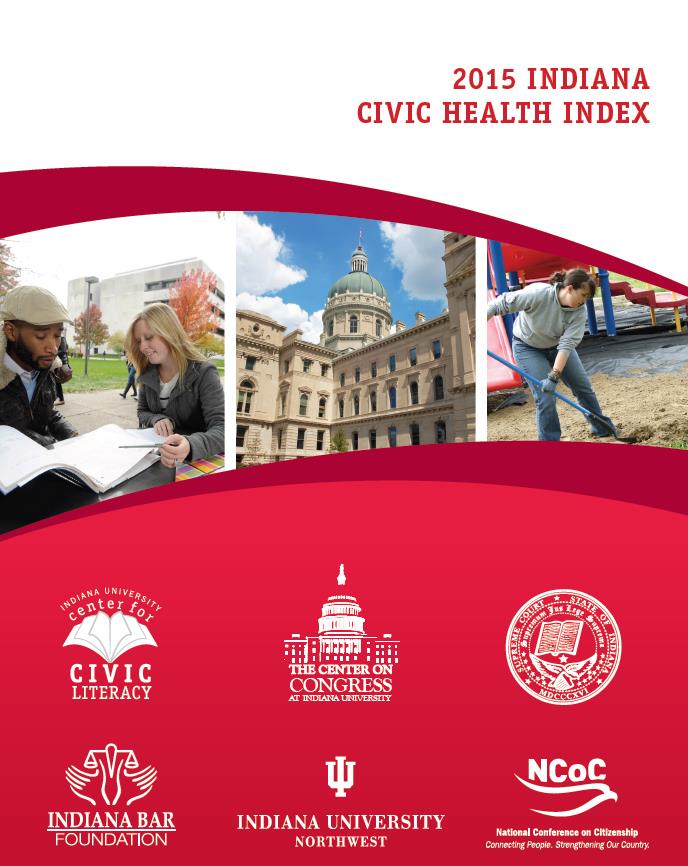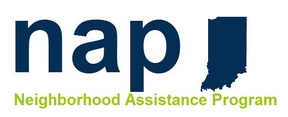Thank you for your interest and support. The Indiana Association of United Ways usually provides its Policy Update on "odd Fridays" (1st, 3rd and 5th Fridays). Contact us if you have any questions or comments about content (past, present or desired for the future).
|

 The other update from the Statehouse The other update from the Statehouse
Many may think that the Religious Freedom Restoration Act (RFRA) consumed all the energy in the statehouse the past two weeks. But the Indiana General Assembly amended and advanced a number of bills, including the 2-1-1 bill, the state refund garnishment bill and various tax bills involving credits, deductions and exemptions. The House Public Health Committee held marathon, emotional hearings on ways to address the growing heroin problem statewide and the HIV epidemic in southwestern Indiana. Additionally, the Senate Appropriations and House Ways and Means committees continued with bills affecting the 2015-2017 $30 billion state budget.
Committee reports are due April 9 with less than one week to pass the second chamber by April 15. The legislature must adjourn by April 29.
|

 2015 Civic Health Index
A new report measures the extent to which Hoosiers engage in their communities. The 2015 Indiana Civic Health Index tracks changes over time in community involvement, volunteerism, social connectivity, voter registration and turnout, political involvement and confidence in public institutions. Additionally, the report compares urban, suburban and rural areas.
Here are a few highlights:
- Participation in group associations has grown, with a higher participation in suburban and urban areas.
- Hoosiers volunteer and donate to charitable organizations at a rate slightly higher than the national average.
- By this study, Hoosiers rank about at the national average in their confidence in public schools and significantly higher in their confidence in corporations and in the media.
- Hoosiers report closer family connections and more frequent interactions than residents of other states.
- This report reviews 2012 presidential election data, where Indiana ranked 37th in voter turnout. (We have previously reported to you that Indiana ranked last in voter turnout for the 2014 elections.)
The 2015 Civic Health Index measures political involvement as voting in local elections, boycotting or buying goods or services and expressing an opinion through social media. For years 2011 and 2013, Hoosiers increasingly participated in these activities. It will be interesting to see how this grows for the next issue of this report.
|
 2-1-1 bill advances in Senate 2-1-1 bill advances in Senate
HB1010 passed out of the Senate Utilities Committee on April 2 with a vote of 7-0. Sen. Merritt explained his long-time support dating back to creation of the Safe Haven law for abandoned newborns, and Sen. Houchin recalled the ways that 2-1-1 helps families referred by the IN Department of Child Services. A few of the committee members live in or near communities affected by tornadoes and floods and recalled the critical role 2-1-1 plays in disasters.
The House version of the budget bill, HB1001, includes $2 million in funding for Indiana's 2-1-1 network. Attorney General Greg Zoeller championed that now is the time for the state to include the funding for 2-1-1 in the budget. The Senate Appropriations Committee is anticipated to release its version of the budget next week.
|

Preparing for a conference committee on State EITC and tax issues?
 In case you are keeping track, the tax-related bills we are following continue to be in flux. Provisions are amended in and out of various bills, setting the stage for conference committee negotiations with trading or elimination of certain elements. Here is the quick summary (as of this week): In case you are keeping track, the tax-related bills we are following continue to be in flux. Provisions are amended in and out of various bills, setting the stage for conference committee negotiations with trading or elimination of certain elements. Here is the quick summary (as of this week):
* HB1349 sits on second reading before the Senate, making it eligible for additional amendment. In March, the Senate Tax and Fiscal Policy Committee amended out the re-coupling provision for
State Earned Income Tax Credit (EITC). The current bill preserves Neighborhood Assistance Program (NAP) tax credits but removes tax credits for Individual Development Accounts (IDAs).
* SB441 was amended by the Ways and Means Committee earlier this week to reinsert the recoupling of state EITC as well as other provisions, making it more similar to the HB1349 that left the House.
Re-coupling State EITC and preservation of NAP credits are priorities for IaUW. Each year, nearly 500,000 Hoosier taxpayers claim the State EITC, with an average benefit of $194. State EITC helps lift working Hoosiers out of poverty. Review our one-pager on EITC. NAP credits help nonprofits raise charitable funds to invest in housing, child care, senior services, domestic violence shelters and rural transportation.
|
  NAP credit applications are open
The Indiana Housing and Community Development Authority (IHCDA) is accepting applications f or 2015-2016 Neighborhood Assistance Program (NAP) tax credits. Eligible nonprofits are strongly encouraged to participate in a pre-application webinar on April 14 and review requirements prior to applying. Review public notice. Applications are due April 17.
|

Know someone uninsured who was subject to the Tax Penalty?
Special Enrollment Period available through April 30.
Please post this flier and encourage enrollment in health insurance. Individuals who were subject to the tax penalty for being uninsured in 2014 may be eligible for the
 "Special Enrollment Period" (SEP) in the Health Insurance Marketplace, even though the open enrollment period ended Feb. 15. "Special Enrollment Period" (SEP) in the Health Insurance Marketplace, even though the open enrollment period ended Feb. 15.
Tax penalties for each year:
2014 - $95/adult; $47.50/child; $285 maximum or 1% of income
2015 - $325/adult; $162.50/child; $975 maximum or 2% of income
2016 - $695/adult; $347.50/child; $2,085 maximum or 2.5% of income
|
|

Stay informed and get involved
The Indiana General Assembly has six weeks left. While over 1,200 bills were filed, only a few hundred are still alive. Below are key links.
|
  Recent documents from the policy team Recent documents from the policy team
We are receiving requests for a number of documents we prepared over the last month.
- One-page fact sheets on
- Recent testimony about
- Our quick summaries about
|

 IaUW Public Policy IaUW Public PolicyIaUW is a nonpartisan organization that works to advance policy principles and compromise solutions for the common good. We focus on policies that are aligned with the impact work in local communities conducted by our 61 United Ways and United Funds.
- Education, so that children are prepared for and succeed in school;
- Income/Financial Stability, so that individuals and families may achieve and sustain financial stability;
- Health, so that individuals may access quality healthcare; and
- Strong Communities, where a statewide 2-1-1 network and a strong charitable sector help communities thrive.
|
Frequently Requested Links / Documents
iauw.org - Learn about the Indiana Association of United Ways, current trainings and conferences and the ways we support local United Ways/Funds, partners and communities.
IaUW Policy / Advocacy info - Review and download IaUW Policy Priorities, Third House calendar, bill lists, fact sheets, talking points and testimony.
Advocacy Action Center - Contact your member of Congress or State Legislator, provided through our partnership with United Way Worldwide.
IaUW Policy Update Archive - Read prior issues, special articles and key documents produced by IaUW related to public policy and advocacy.
NEW - Community Report Card - Check out key indicators in Education, Income and Health for your neighborhood, county or region. IN211.org - S earch for human service information available through the referral database or by calling 2-1-1. Download reports about resources, needs, gaps and trends from Indiana 211 Partnership.
NRN Calendar - Register for high-quality and affordable training for nonprofit staff and volunteers by the Indiana Nonprofit Resource Network.
Indiana General Assembly
- Check the hearing or floor schedule, watch a live or recorded hearing or floor session and look up your legislators.
Library of Congress
- Look up bills introduced in Congress. Note that the THOMAS site will be maintained through 2014 and fully replaced by Congress.gov.
|
|
Copyright © 2013. All Rights Reserved.
|
|
|
|
|